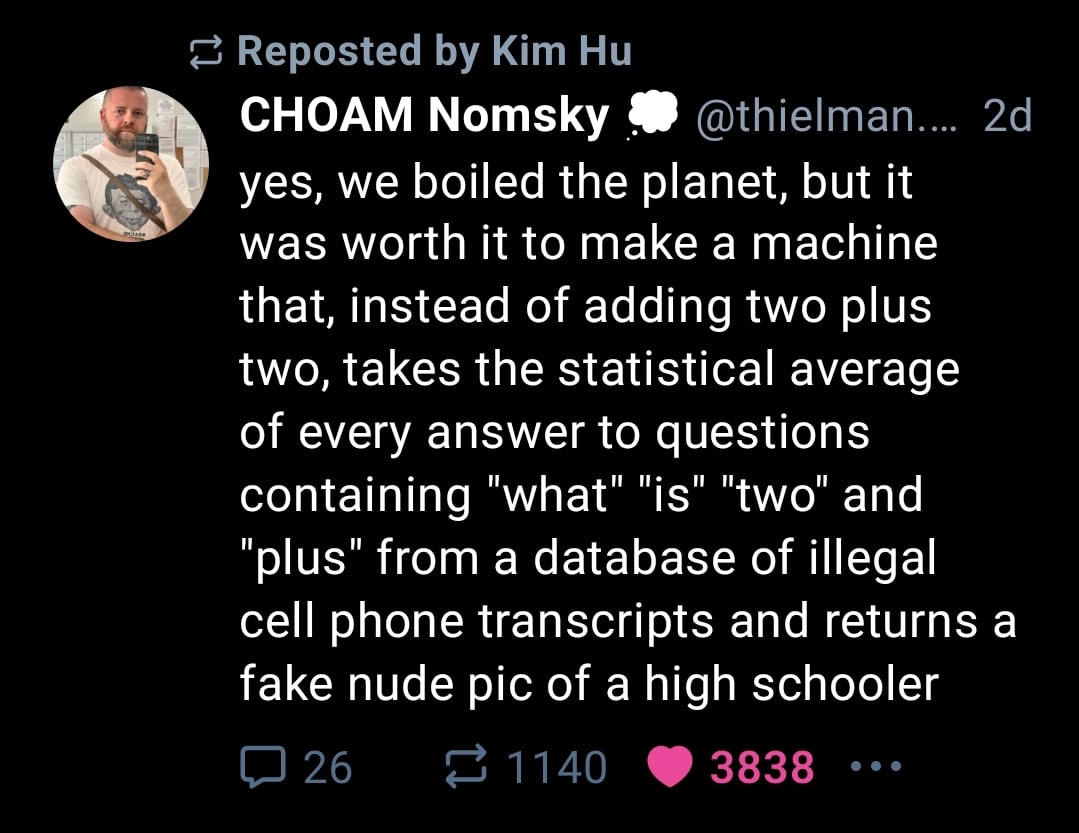this post was submitted on 07 Jul 2024
1247 points (95.1% liked)
Fuck AI
1387 readers
98 users here now
"We did it, Patrick! We made a technological breakthrough!"
A place for all those who loathe AI to discuss things, post articles, and ridicule the AI hype. Proud supporter of working people. And proud booer of SXSW 2024.
founded 8 months ago
MODERATORS
you are viewing a single comment's thread
view the rest of the comments
view the rest of the comments

If we had infinite money plus infinite people with the required skills to design and build nuclear power plants plus a magical method to build nuclear reactors in 2 months (or even instantly !) plus managed to convince the public opinion that nuclear energy is actually fine, then the climate crisis would be only partially solved ! Hurray ! (This doesn't in and of itself solve food production & consumption, transportation and other sources of land use change emissions, we'd need a whole lot more work or on many other subjects)
In more serious terms (Net Zero research), nuclear isn't perfect nor is it the be all and end all solution, but it IS globally a part of the solution to generate cleaner electricity and cutting emissions. However, since we don't have all the magical things I was listing earlier, its development encounters many roadblocks and it turns out that wind and solar are extremely well scalable, integrates pretty well into grids as long as we're willing to develop the (mostly known) solutions to counter their variability (several exemples of high integration rates in different settings). The issue is that all of this (both nuclear and renewables) demands a lot of investment in terms of money, of people with the required skill sets and educating the public opinion that this is needed and desirable. And that's a MASSIVE challenge.
Which is why, to get to the point, the enormous electricity use of AI is actually a problem because its additional power consumption is keeping fossil power plants running or making them run more when emissions should be declining due to advancements in low carbon electricity production (mostly renewables). In general, it makes reaching Net Zero goals harder.